The brain is the most important organ of any animal organism. It consists of many different areas, each of which performs its own function. For example, thecerebral cortexis responsible for thinking, planning, memory, and problem solving. We need theHippocampusto navigate in space, regulate emotions and perform many other functions. The Cerebellumis necessary for the coordination of movements, and it is also actively involved in remembering information. Areas of the brain communicate closely with each other and are also connected with all other internal organs of living organisms. The human brainweighs approximately 1.4 kilogramsand accounts for approximately 20% of the body's energy needs. Compared to other human organs, the brain is very large. Who is the owner of the largest brain among all living organisms? Now you will find out the answer!
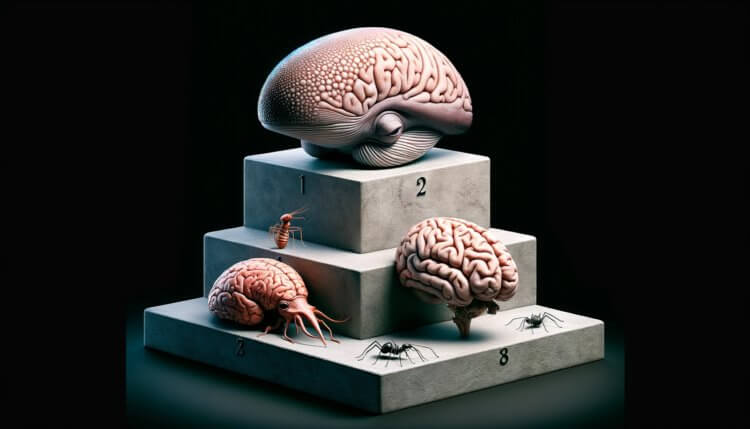
There is an animal in the world with a huge brain, but this does not mean that it is the smartest on Earth
The largest brain among animals
The owner of the largest brain in history is the sperm whale(Physeter macrocephalus). It is a large marine mammal that can grow up to 20 meters in length and weigh around 40 tons. Male sperm whales are always almost twice as large as females, so these animals best demonstrate the anatomical differences between the different sexes (sexual dimorphism).
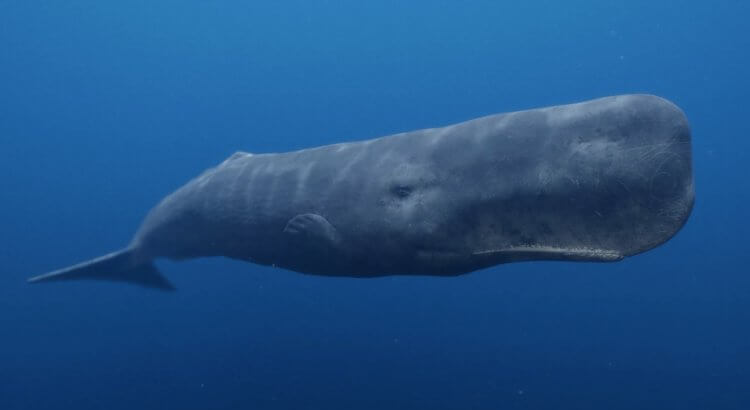
Sperm whales themselves are one of the largest animals on Earth. Photo source: indiatimes.com
Sperm whales are gregarious animals, meaning they are rarely seen alone. Sometimes groups of sperm whales consist of hundreds or even thousands of individuals that are in search of food. These creatures feed on cephalopods, including giant squids, whose body size can reach 18 meters. Sometimes, when there is no food on the surface, sperm whales descend to a depth of up to 2 kilometers, where they find giant prey. They can remain at this depth for about 1.5 hours.
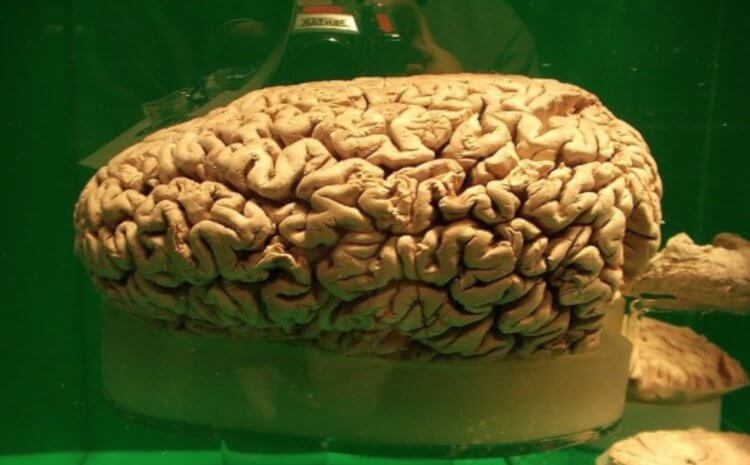
The brain of the sperm whale. Photo source: neuronovosti.ru
Sperm whales have the largest brain of all animals – in adult males it weighs approximately 9 kilograms.Compared to the human brain, it is really huge, but if you take into account the 40-ton body mass of the sperm whale, then the ratio of brain mass to body mass is only 1:5100. That is, the brain inside the body of a sperm whale is a very small organ.
A very popular article on our website: Why does sperm whale vomit cost a million dollars and what is it for?
What is the size of the brain of ants
If we talk about the largest ratio of brain mass to body size, then ants from the genus Brachymyrmex have this. A 2009 study published in the scientific journal Brain, Behavior and Evolution showed that their brains weighed an average of 0.006 milligrams. Considering that insects have a body mass of 0.049 milligrams, the ratio of brain mass to body mass is approximately 1:8. To put it another way, the brain of these tiny ants accounts for approximately 12% of their body weight.
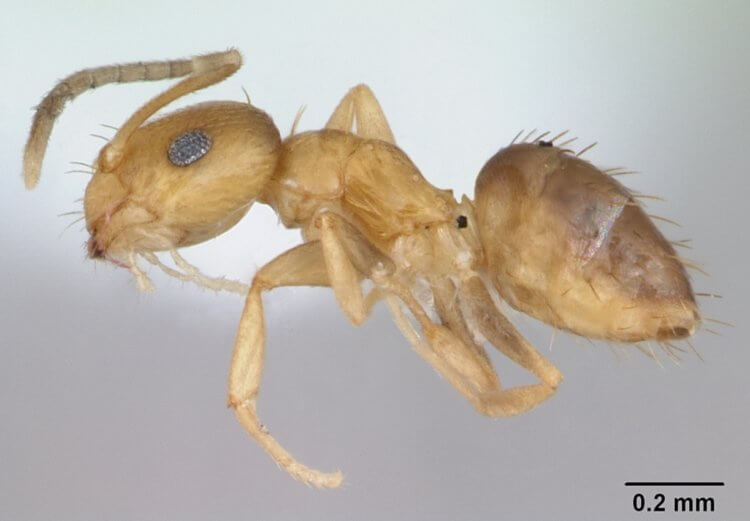
Ant from the genus Brachymyrmex. Image source: antwiki.org
The difference in the ratio of brain size to body weight in sperm whales and ants perfectly proves the validity of Haller's rule.It states that the larger the body size of a living organism, the smaller his brain will be in relation to his body. Marine mammals have huge bodies, but the brain is one of the tiniest organs in their body. Ants have small bodies, but the brain takes up a lot of space in this body.
Read also:Scientists have found out why the human brain is larger than that of monkeys
The man with the largest brain
The owner of the largest brain is considered to be the Russian writer Ivan Turgenev, the author of the famous story “Mumu”, the novel “Fathers” and children”, as well as many other famous works. After his death in 1883, his brain was weighed and found to weigh 2.01 kilograms, which is about 600 grams more than the average brain weight of ordinary people.
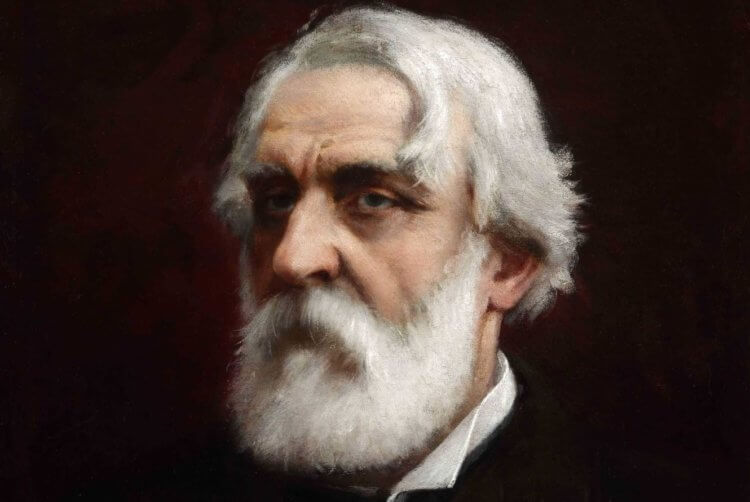
Russian writer Ivan Turgenev. Image source: cultobzor.ru
Although Turgenev had a very large brain, it was not this feature that made him a man of genius. Brain size has almost no effect on the level of intelligence of humans and animals. To a large extent, the development of the mind depends on the number of neurons and connections between them, genetic predisposition, environment, proper nutrition and many other factors.
Right now, check if you have a subscription to our Zen channel. If not, it's time to fix it and leave comments under the articles!
Finally, it is worth noting that scientists have recently discovered that the human brain increases in size with each generation of people. The study found that the brain volume of people in the 1970s was larger than that of people in the 1930s. There is a possibility that thanks to brain enlargement, older people of the future will be less likely to suffer from dementia.